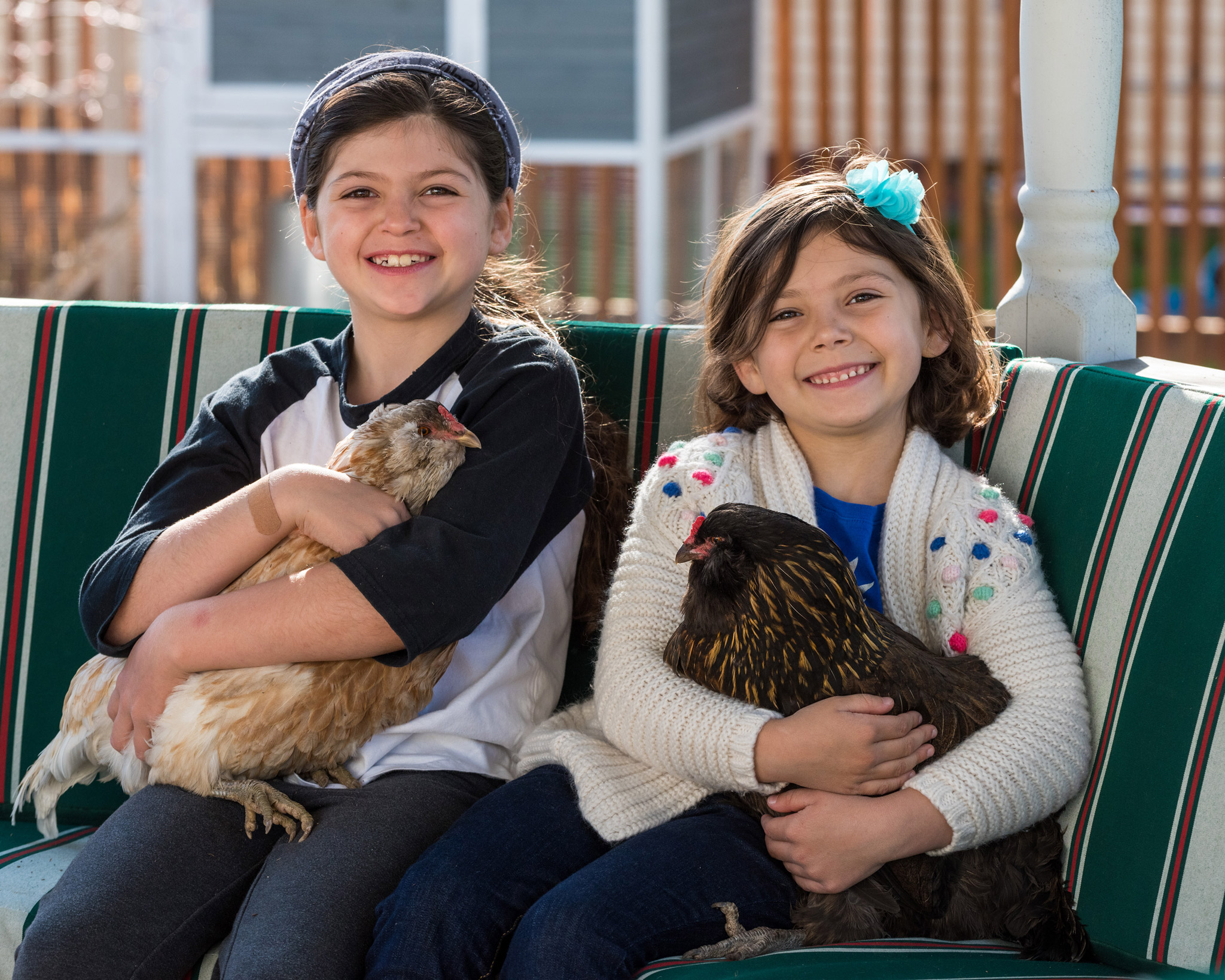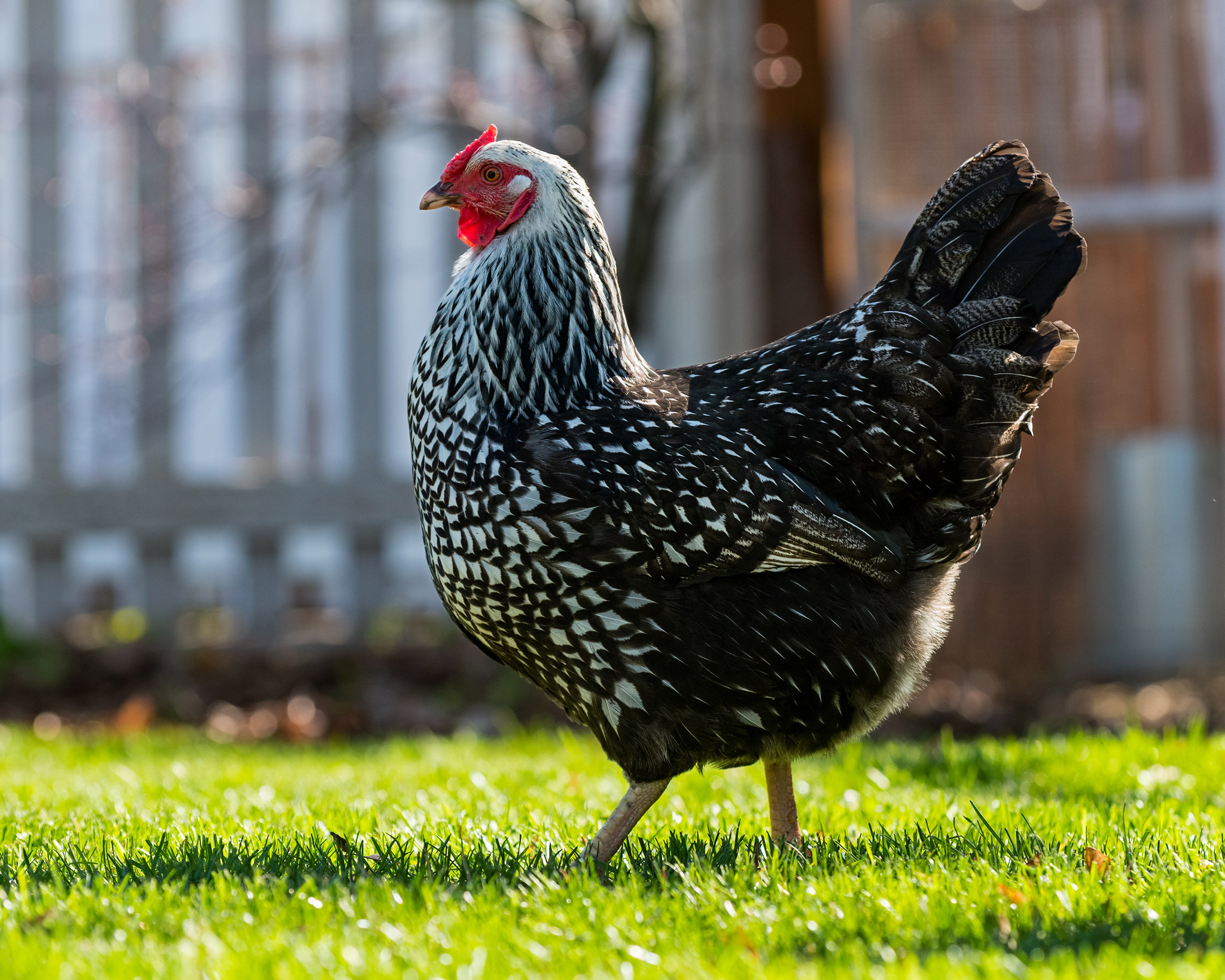From garden to table, urban chickens offer ‘egg’-cellent benefits.
Chickens have been an intermittent part of my life, from chasing them around my great grandmother’s Oklahoma farm as a kid, to helping my mother raise them for eggs in a Colorado suburb as an adult.
While many cities have restrictions on raising bees within their limits, they often have looser requirements for backyard chickens and other poultry, provided your neighbors are ok with it. The USDA reports that 7 percent of U.S. households maintain a small backyard flock. And with the continual rise of local food movements and interest in growing our own food, it seems inevitable that these statistics will increase.
Urban flocks offer three primary benefits for gardeners and urban farmers: compost, garden pest management and food. Note: This is not a guide to raising chickens, but rather an exploration of the benefits of integrating an urban flock into your horticultural practices. Visit your local extension office, feed store and library to discover how to raise and care for chickens.
» Compost
When raising birds, it is important to manage waste buildup, especially manure and bedding. Otherwise, it can create odors, attract flies and promote an unhealthy environment for the birds, the garden and your family. One of the best ways to deal with this issue is to compost it, providing your local government allows it.
It is vital when processing chicken manure and dirty bedding and litter to give it time and to handle it carefully. Harmful bacteria such as E. coli and salmonella can thrive in fresh manure, although not all is contaminated. Still, make sure you wash your hands and clothes thoroughly after handling birds and their waste.
Story continues after a quick message from our sponsor below.
The two most common methods for composting poultry litter are the active pile and direct application sheet composting. With either method, a 120-day curing period is recommended to allow harmful bacteria to die off. This process can be done by applying manure in the fall when you winterize your garden or in a compost pile before application. There are positives and negatives to both methods, so make sure you do your research before you compost.
» Pest Management
Chickens can provide holistic and healthy pest management in your lawn and garden if you let them run “free-range” on your property for periods of time. However, they also can be a detriment to your plants.
Keep chickens out of your garden until seeds have sprouted past the seedling stage. They will eagerly eat freshly sown seeds and new sprouts. They also like to strip some plants of their leaves and flowers and nibble on early fruit. The most ideal time to allow them into your garden is after your plants are established and fully fruiting. I suggest creating a fenced run that allows them limited space in your garden with more available access to lawns, treed areas and flower beds.
» Food: Meat & Eggs
If you’re growing your own vegetables, herbs and fruits, it is an added bonus to have eggs and meat to round out your harvest. To assure you are getting healthy birds, choose chicks from sources that participate in the National Poultry Improvement Plan (www.poultryimprovement.org). There are specific breeds for laying eggs and producing meat. And some can be dual purpose. Pick your birds carefully, manage them properly and reap the rewards. N
By S. Michal Bennett
Photography By Joel Riner




